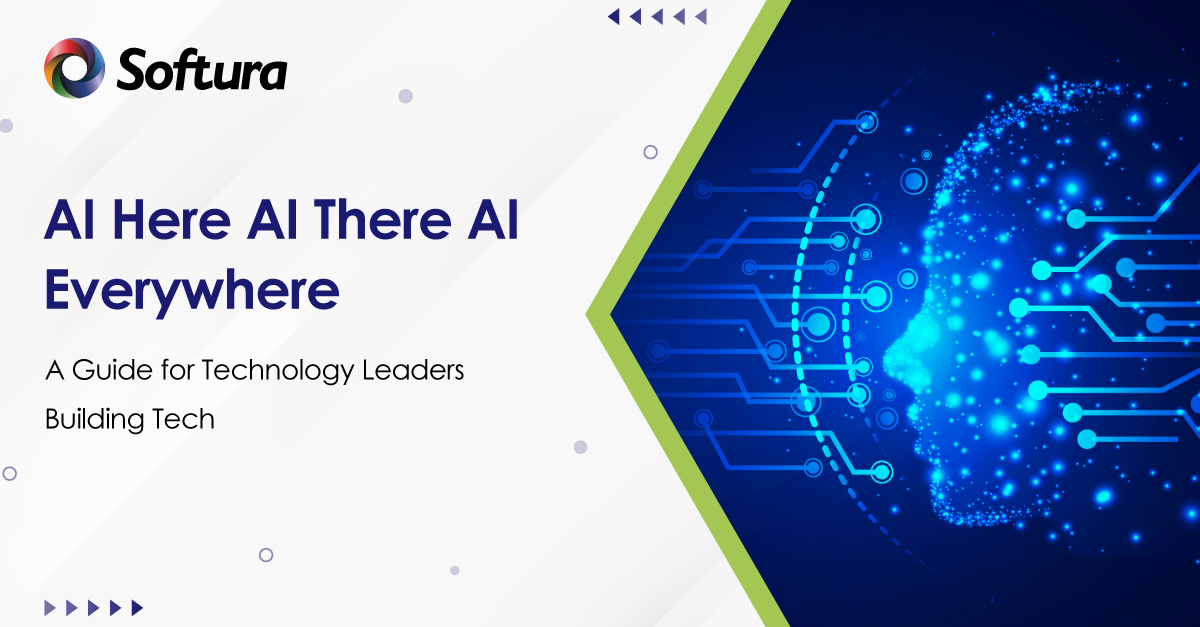- Data Infrastructure: Data is the lifeblood of AI. Without quality data, even the most sophisticated AI algorithms are ineffective. Technology leaders must ensure they have a robust, flexible, and secure data infrastructure in place. This includes databases, data warehouses, and data integration, governance, and security tools. The design should facilitate easy and secure access to data for AI applications while maintaining privacy and compliance.
- Scalable and Flexible Architecture: AI applications require significant computer resources, and the demands can fluctuate widely. Traditional, monolithic architectures may not be suitable. Instead, consider cloud-based solutions that can scale on demand. Microservices and serverless architectures can also provide the flexibility needed for AI workloads.
- AI-Friendly Development Practices: Adopt development practices that support AI. This might include Agile methodologies to rapidly iterate on AI models, DevOps practices to automate the deployment of AI applications, and MLOps practices to manage the lifecycle of machine learning models.
- Skilled Workforce: AI requires specialized skills. While you can (and should) invest in training your existing staff, you may also need to recruit new talent. This could include data scientists to develop AI models, data engineers to manage data infrastructure, and AI ethicists to ensure the responsible use of AI. This type of expertise is highly specialized, and that talent is generally available outside of your organization.
- Ethical Considerations: As AI becomes more integrated into your technology stack, it's essential to consider the ethical implications. This includes privacy, fairness, transparency, and accountability. Develop AI ethics guidelines, provide training to your staff, and consider appointing an AI ethics officer. This is particularly important in government and healthcare, where AI output may adversely impact lives. The safety of AI output must be governed.
Appendix
Here are the top 10 global AI conferences in 2023 and the dates, locations, associations, and board of directors. These significant conferences are some of the best ways to stay on top of trends and network with leaders in AI:
1. AI Summit New York (https://newyork.theaisummit.com/)
- Dates: June 7-8, 2023
- Location: New York City, NY
- Association: The AI Summit
- Board of Directors:
- Michael I. Jordan, President, University of California, Berkeley
- Fei-Fei Li, Co-President, Stanford University
- Andrew Ng, Co-President, Stanford University
- Geoffrey Hinton, Co-President, University of Toronto
- Yoshua Bengio, Co-President, University of Montreal
2. AI Accelerator Summit Boston (https://world.aiacceleratorinstitute.com/)
- Dates: June 14-15, 2023
- Location: Boston, MA
- Association: The AI Accelerator Summit
- Board of Directors:
- Stuart Russell, President, University of California, Berkeley
- Oren Etzioni, Co-President, Allen Institute for Artificial Intelligence
- Daphne Koller, Co-President, Stanford University
- Tom Mitchell, Co-President, Carnegie Mellon University
- David Blei, Co-President, University of California, Berkeley
3. AI Everything x Gitex (https://ai-everything.com/)
- Dates: October 16-20, 2023
- Location: Dubai, UAE
- Association: Gitex Global
- Board of Directors:
- Rashid Al Mansouri, Chairman, Dubai World Trade Centre
- Helal Saeed Al Marri, CEO, Dubai World Trade Centre
- Saif Al Aleeli, Deputy CEO, Dubai World Trade Centre
- Jamal Al Jarwan, Director General, Dubai World Trade Centre
- Hamad Al Shamsi, Director of Marketing and Communications, Dubai World Trade Centre
4. World AI Summit ( https://worldsummit.ai/)
- Dates: November 1-3, 2023
- Location: Barcelona, Spain
- Association: World AI Summit
- Board of Directors:
- Yann LeCun, President, New York University
- Yoshua Bengio, Co-President, University of Montreal
- Geoffrey Hinton, Co-President, University of Toronto
- Fei-Fei Li, Co-President, Stanford University
- Michael I. Jordan, President, University of California, Berkeley
5. AI Hardware & Edge AI Summit
- Dates: November 8-10, 2023
- Location: San Francisco, CA
- Association: AI Hardware & Edge AI Summit
- Board of Directors:
- Andrew Ng, President, Stanford University
- Michael I. Jordan, President, University of California, Berkeley
- Fei-Fei Li, Co-President, Stanford University
- Geoffrey Hinton, Co-President, University of Toronto
- Yoshua Bengio, Co-President, University of Montreal
6. Machine Learning & Data Science Summit
- Dates: November 15-17, 2023
- Location: London, UK
- Association: Machine Learning & Data Science Summit
- Board of Directors:
- Stuart Russell, President, University of California, Berkeley
- Oren Etzioni, Co-President, Allen Institute for Artificial Intelligence
- Daphne Koller, Co-President, Stanford University
- Tom Mitchell, Co-President, Carnegie Mellon University
- David Blei, Co-President, University of California, Berkeley
7.Deep Learning & Neural Networks Summit
- Dates: November 22-24, 2023
- Location: Tokyo, Japan
- Association: Deep Learning & Neural Networks Summit
- Board of Directors:
- Yann LeCun, President, New York University
- Yoshua Bengio, Co-President, University of Montreal
- Geoffrey Hinton, Co-President, University of Toronto
- Fei-Fei Li, Co-President, Stanford University
- Michael I. Jordan, President, University of California, Berkeley
8.Natural Language Processing & Speech Recognition Summit
- Dates: December 6-8, 2023
- Location: Sydney, Australia
- Association: Natural Language Processing & Speech Recognition Summit
- Board of Directors:
- Andrew Ng, President, Stanford University
- Michael I. Jordan, President, University of California, Berkeley
- Fei-Fei Li, Co
Food for Thought
AI is a force of change that technology leaders can't afford to ignore. By understanding its potential and implementing it wisely, they can drive their organizations toward greater efficiency, accuracy, and productivity. The ability to harness AI-driven insights and automation can lead to cost savings, competitive advantages, and the ability to deliver innovative solutions to the market. As the AI landscape continues to advance, organizations that embrace and leverage its power will be well-positioned to thrive in the digital age.
